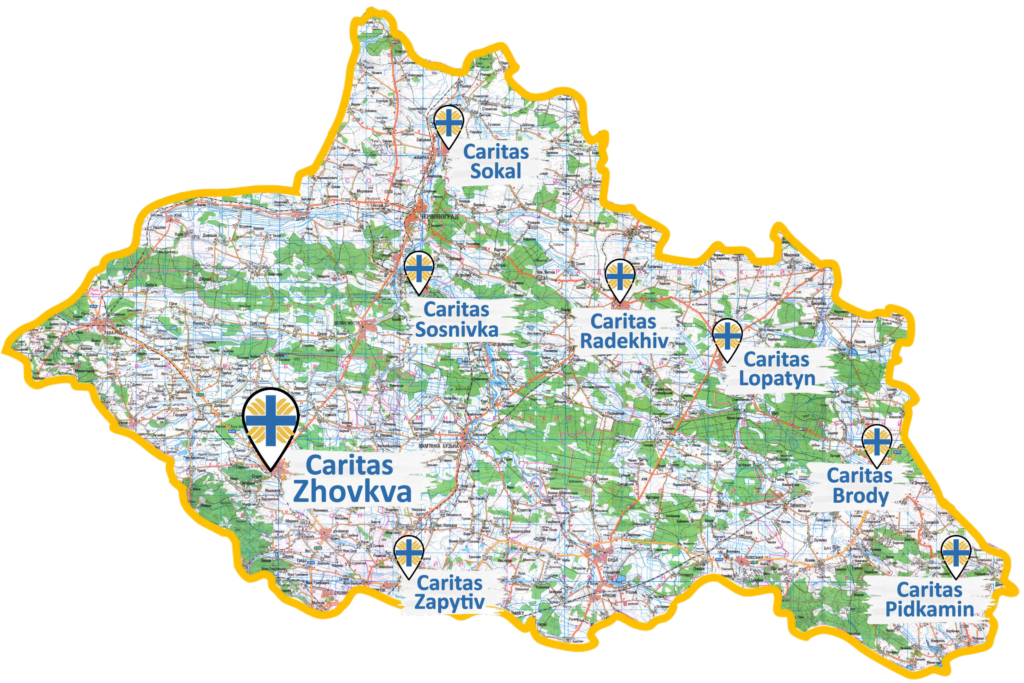
Parish Branches and Activities of CF "Caritas Zhovkva UGCC"
A network of parish Caritas organizations in the Sokal-Zharkiv diocese includes:
- CF «Caritas Brody»
- CF «Caritas Radekhiv»
- CF «Caritas Pidkamin»
- CF «Caritas Sokal»
- CF «Caritas Sosnivka»
- CF «Caritas Lopatyn»
- CF «Caritas Zapytiv»
There, beneficiaries can receive a wide range of services: from food and hygiene kits to crisis center services (psychologist, lawyer, crisis counselor, case manager). The local centers meet the need for drinking water and provide hot meals for vulnerable categories of citizens. A social wardrobe also operates on a regular basis.
For more information about the work of parish Caritas, please contact us in any way convenient for you.
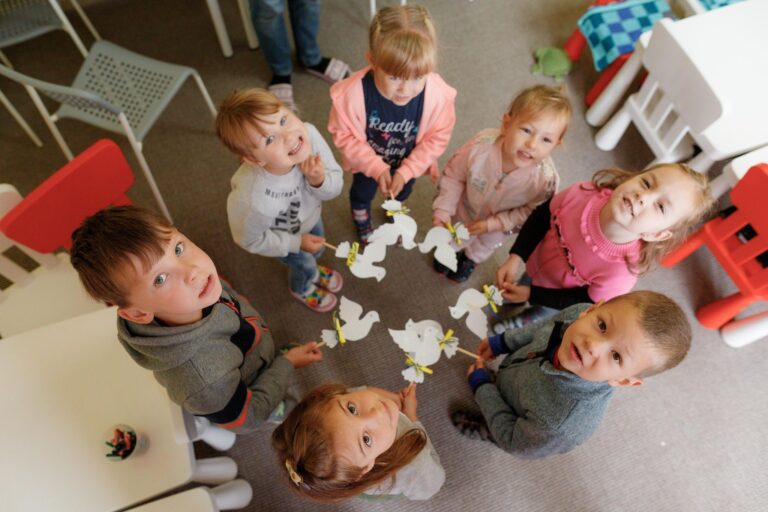
Child-friendly space

Operates at:
- Zhovkva, Yevhenia Konovaltsia Square 11
- Mon-Fri 9:00-17:00
- +38 093 6131975
The child-friendly space operates as a part of the NIN Protection project and aims to overcome the barrier of socialization for children whose families were forced to leave their homes due to the war. The project provides services of child psychologists, social educators and animators for children and adolescents to promote their psychosocial well-being and build and strengthen positive relationships between children and their parents, guardians and peers.
We hope that the seeds of care and kindness we sow in the hearts of young Ukrainians will bear the fruits of virtue and compassion in the future.
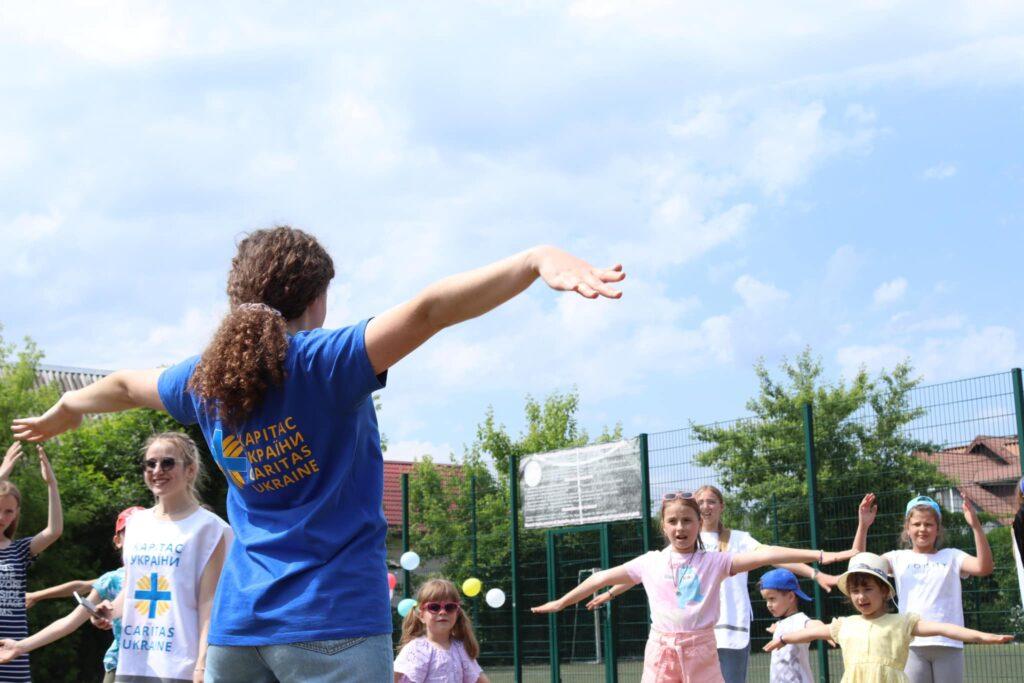
Humanitarian aid distribution center of CF "Caritas Zhovkva UGCC"

Operates at:
- Zhovkva, Vicheva Square 4
- Mon-Fri 9:00-18:00
- +38 050 6722732
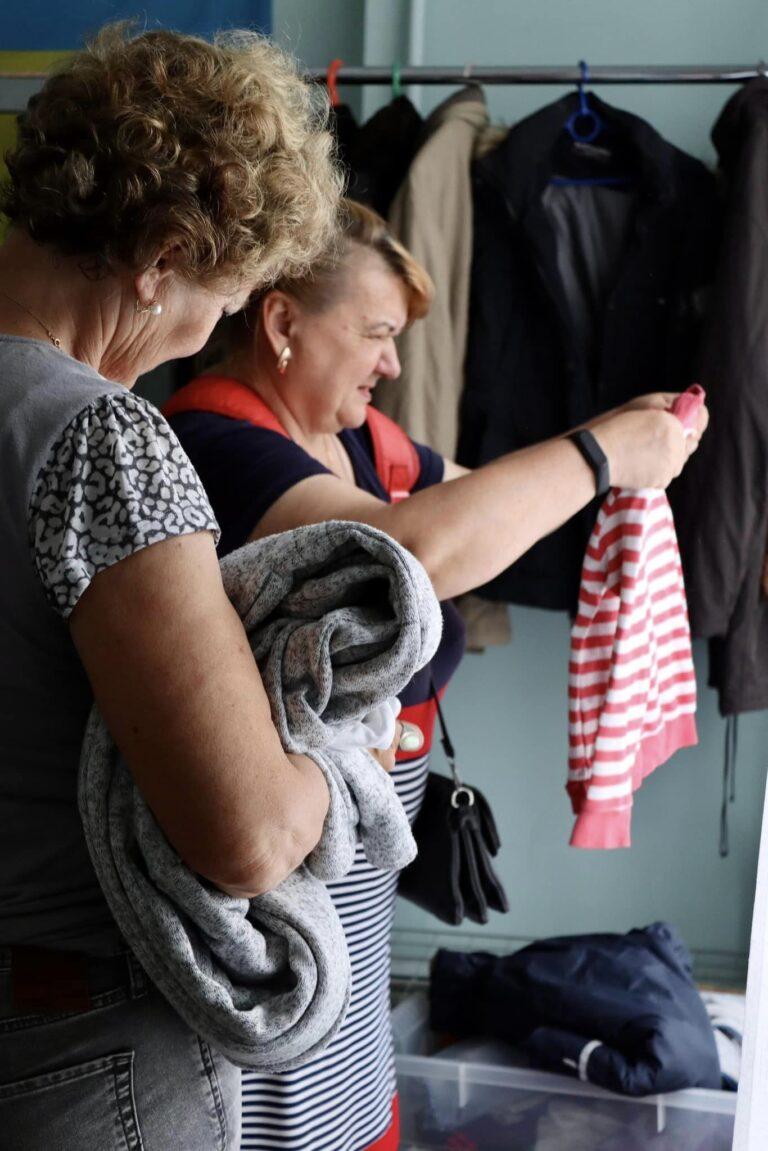
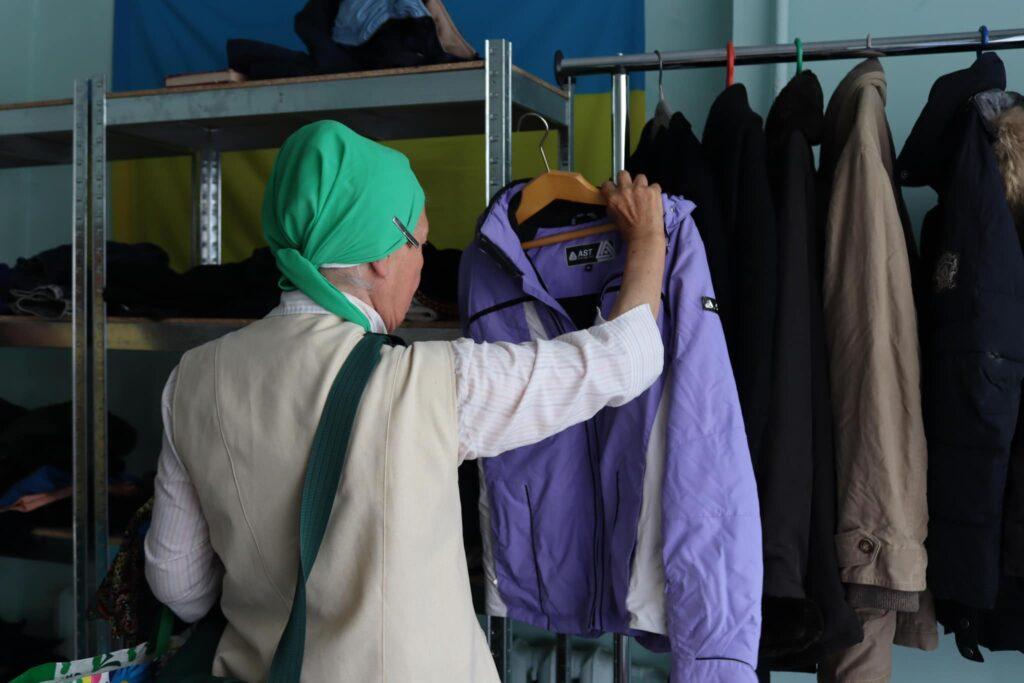
The humanitarian aid distribution point of the Caritas Zhovkva UGCC provides socially vulnerable people with assistance of:
- clothing
- footwear
- bedding
We also appeal to local residents:
If you are willing and able to donate the listed items in good condition for socially vulnerable people, please bring them to our distribution point at the above address.
NIN ERPU - Humanitarian protection of people affected by the conflict in Ukraine
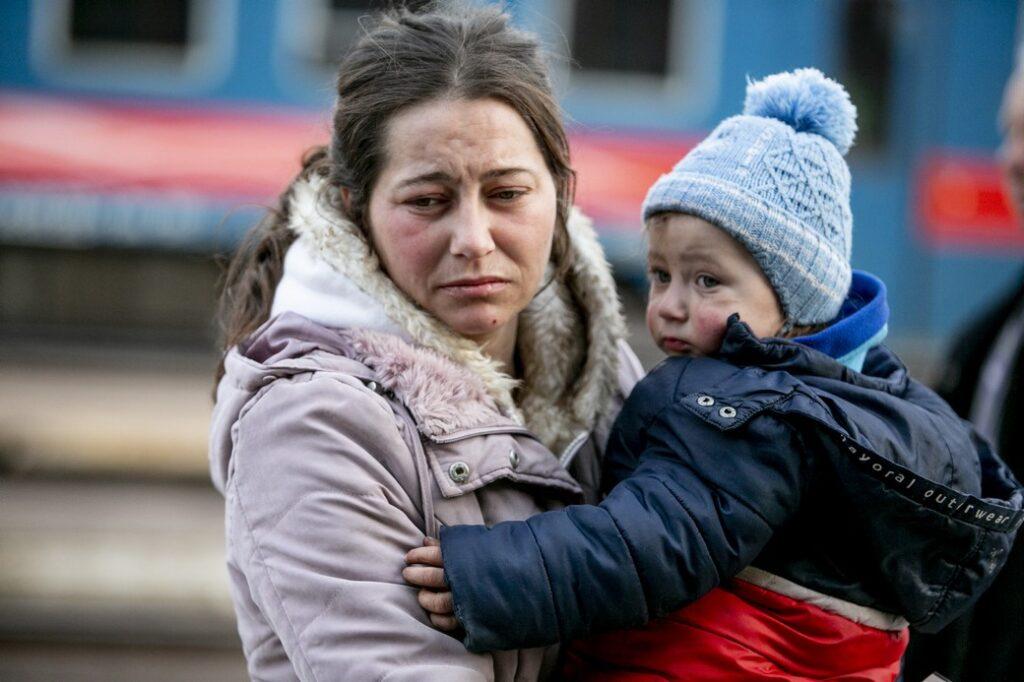
The project started on February 1, 2023, with the support of Caritas Österreich and NACHBAR IN NOT, and will last until May 31, 2024. The project involves local Caritas branches in Zhovkva, Stryi, Ternopil, Ivano-Frankivsk, Kolomyia, Novovolynsk, Poltava, and Odesa.
As part of the project, beneficiaries can receive psychosocial support services at Crisis Centers and Child Friendly Spaces, multi-purpose cash grants (MPC) and financial assistance from case managers.
You can learn more about the project by downloading the materials as a PDF file at the below link:
Eligible beneficiaries of the project:
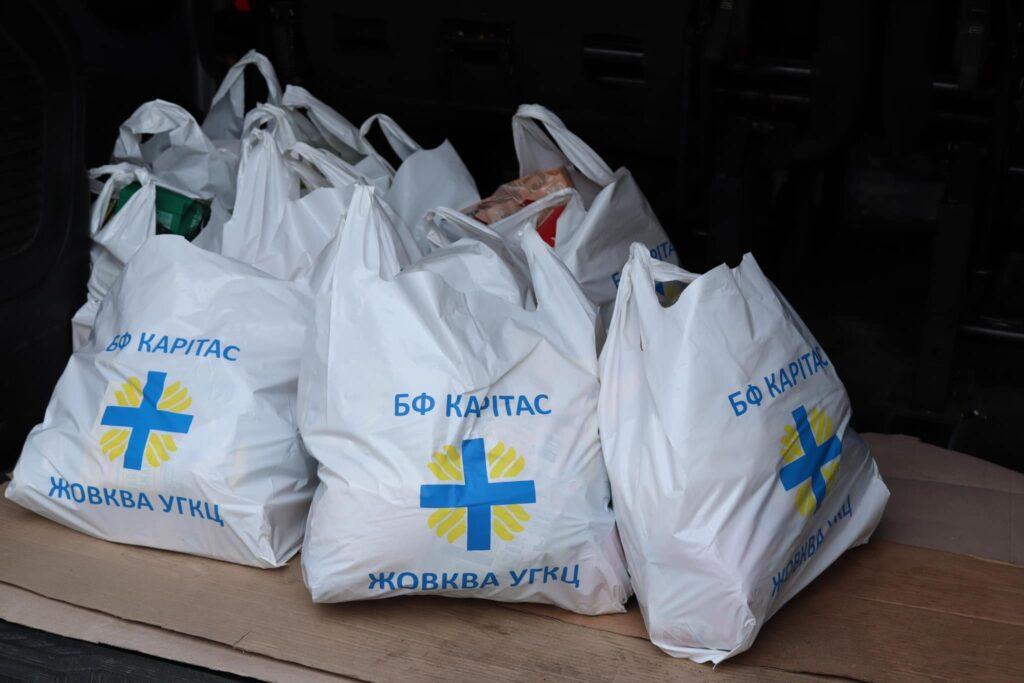
Emergency appeal - responding to emergencies as a results of the war in Ukraine
Project started on February 24, 2022. The project involves 29 Caritas and almost 1000 employees.
Humanitarian aid is provided in 6 main areas:
1.Food safety and supply:
• Provision of hot meals (organization of kitchens) at collective reception centers for IDPs;
• Individual and family food kits distributions.
2. Water supply, hygiene, and sanitation:
• Provision of drinking water;
• Individual and family hygiene kits;
• Special hygiene kits for people with disabilities;
•Special hygiene kits for infants;
•Provision of hygiene products, detergents and laundry detergents to collective reception centers for IDPs. Organization of laundries and showers.
3.Shelter:
• Equipping the premises for the temporary stay of internally displaced persons: organizing places for sleeping, cooking, and hygiene.
•Cash grants for renting accommodation,
•Targeted grants to repair damaged homes.
4.Health:
• Basic family medical kits.
5.Protection:
• Psychosocial support for IDPs and war victims;
• Complex social support;
• Crisis consulting and case management;
• Psychosocial support for children within the "Child Friendly Spaces" program.
6. Advocacy:
• Representing the interests of IDPs before local communities, which will help people adapt to changed living conditions;
• Assistance in finding lost people, restoring documents to prevent human trafficking;
